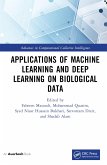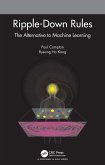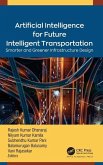Systems Biology and Machine Learning Methods in Reproductive Health
Herausgeber: Sengupta, Abhishek; Modi, Deepak; Gupta, Dinesh; Narad, Priyanka
Systems Biology and Machine Learning Methods in Reproductive Health
Herausgeber: Sengupta, Abhishek; Modi, Deepak; Gupta, Dinesh; Narad, Priyanka
- Gebundenes Buch
- Merkliste
- Auf die Merkliste
- Bewerten Bewerten
- Teilen
- Produkt teilen
- Produkterinnerung
- Produkterinnerung
Bringing science and data science together, this ground-breaking book provides scientists, clinicians, and students with a step-by-step guide to uncovering the complexities of reproductive health through cutting-edge computational tools.
Andere Kunden interessierten sich auch für
![Deep Learning in Diabetes Mellitus Detection and Diagnosis Deep Learning in Diabetes Mellitus Detection and Diagnosis]() Deep Learning in Diabetes Mellitus Detection and Diagnosis165,99 €
Deep Learning in Diabetes Mellitus Detection and Diagnosis165,99 €![Applications of Machine Learning and Deep Learning on Biological Data Applications of Machine Learning and Deep Learning on Biological Data]() Applications of Machine Learning and Deep Learning on Biological Data154,99 €
Applications of Machine Learning and Deep Learning on Biological Data154,99 €![Ripple-Down Rules Ripple-Down Rules]() Paul ComptonRipple-Down Rules186,99 €
Paul ComptonRipple-Down Rules186,99 €![Artificial Intelligence and Ethics Artificial Intelligence and Ethics]() Tarnveer SinghArtificial Intelligence and Ethics165,99 €
Tarnveer SinghArtificial Intelligence and Ethics165,99 €![Future Tech Startups and Innovation in the Age of AI Future Tech Startups and Innovation in the Age of AI]() Future Tech Startups and Innovation in the Age of AI220,99 €
Future Tech Startups and Innovation in the Age of AI220,99 €![Artificial Intelligence for Future Intelligent Transportation Artificial Intelligence for Future Intelligent Transportation]() Artificial Intelligence for Future Intelligent Transportation187,99 €
Artificial Intelligence for Future Intelligent Transportation187,99 €![Deep Learning for Engineers Deep Learning for Engineers]() Tariq M ArifDeep Learning for Engineers121,99 €
Tariq M ArifDeep Learning for Engineers121,99 €-
-
-
Bringing science and data science together, this ground-breaking book provides scientists, clinicians, and students with a step-by-step guide to uncovering the complexities of reproductive health through cutting-edge computational tools.
Hinweis: Dieser Artikel kann nur an eine deutsche Lieferadresse ausgeliefert werden.
Hinweis: Dieser Artikel kann nur an eine deutsche Lieferadresse ausgeliefert werden.
Produktdetails
- Produktdetails
- Verlag: CRC Press
- Seitenzahl: 186
- Erscheinungstermin: 31. Dezember 2024
- Englisch
- Abmessung: 254mm x 178mm x 13mm
- Gewicht: 562g
- ISBN-13: 9781032755519
- ISBN-10: 1032755512
- Artikelnr.: 71610793
- Herstellerkennzeichnung
- Libri GmbH
- Europaallee 1
- 36244 Bad Hersfeld
- gpsr@libri.de
- Verlag: CRC Press
- Seitenzahl: 186
- Erscheinungstermin: 31. Dezember 2024
- Englisch
- Abmessung: 254mm x 178mm x 13mm
- Gewicht: 562g
- ISBN-13: 9781032755519
- ISBN-10: 1032755512
- Artikelnr.: 71610793
- Herstellerkennzeichnung
- Libri GmbH
- Europaallee 1
- 36244 Bad Hersfeld
- gpsr@libri.de
Abhishek Sengupta is Assistant Professor at the Centre of Computational Biology and Bioinformatics, Amity Institute of Biotechnology, Amity University, Noida, Uttar Pradesh, India. He received his MSc from Nottingham Trent University, UK, and PhD from Amity University, India. With 15 years of experience in genome- scale metabolic reconstructions, constraint- based modeling, network biology, systems biology, metabolomics, and flux balance analysis, he has developed the HEPNet knowledge base, contributed to software like TFIS, ARTPre, and PluriMetNet, and databases like VIRdb. He has published extensively in reputed journals and received grants from DST- SERB (a statutory body of the Department of Science and Technology), Government of India. Sengupta has also led technology transfer and licensing of the ML- based software "FertilitY Predictor" and been awarded copyrights for "ARTPre: An Online Tool to Predict the Success Rates of Assisted Reproductive Procedures in Indian Subcontinent". Priyanka Narad is an experienced Bioinformatician and AI expert. She is currently working as a Scientist at the Indian Council of Medical Research (ICMR), New Delhi. With over 13 years of experience, including as an assistant professor at Amity University, her expertise lies in stem cell bioinformatics, machine learning, multi- omics data integration, and predictive modeling. Narad has made significant contributions through numerous publications in prestigious journals like Nature Scientific Reports and PeerJ. She has secured funding for projects like "A Hybrid Bayesian Approach to Address Socio- Economic Challenges in Assisted Reproductive Techniques Across the Indian Sub- population." Narad has developed and deployed software/ databases such as TFIS, ARTPre, VIRdb, and FertilitY Predictor, for which she holds technology transfer and copyright licenses. Her academic excellence was recognized with the DST SERB Young Scientists Travel Award to attend a systems biology course at EMBL- EBI (European Molecular Biology Laboratory- European Bioinformatics Institute), UK. Dinesh Gupta is a distinguished bioinformatician and computational biologist. He obtained his PhD from All India Institute of Medical Sciences in New Delhi. He currently serves as Group Leader of the Translational Bioinformatics Group at the International Centre for Genetic Engineering and Biotechnology (ICGEB) in New Delhi, India. With over two decades of experience in the field, Gupta has made significant contributions to the development and application of bioinformatics tools and artificial intelligence methods for solving complex biological problems. His research interests span a wide range of areas, including machine learning for biological data analysis, computer- aided drug design, comparative genomics, systems biology, and next- generation sequencing data analysis. Gupta has published extensively in prestigious journals and has been actively involved in organizing international bioinformatics workshops and training programs. Deepak Modi is a renowned scientist in Reproductive Biology and Genetics, currently associated with the National Institute for Research in Reproductive and Child Health, Indian Council of Medical Research (ICMR). With a PhD from the University of Mumbai and an extensive academic background, he has received prestigious awards like the PM Bhargava Oration Award and GP Talwar Middle Career Scientist Award. His research focuses on embryo implantation, infertility, and disorders of sex development. Modi has an impressive publication record with 85 publications and 3 book chapters in reputed journals. He has contributed significantly through projects on topics like immunomodulatory roles of HOXA10, microfluidic placental function assessment, endometriosis pathogenesis, and COVID- 19 placenta. In addition, he actively participates in scientific conferences and serves as an invited speaker and panelist, reflecting his expertise in the field.
1. Introduction to Systems Biology and Machine Learning
2. Data Sources and Data Integration in Reproductive Health
3. Genomics and Transcriptomics in Reproductive Health
4. Proteomics and Metabolomics in Reproductive Health
5. Systems Biology Approaches in Reproductive Health
6. Machine Learning Algorithms in Reproductive Health
7. Personalized Medicine in Reproductive Health
8. Ethical and Privacy Considerations
9. Challenges and Future Directions
2. Data Sources and Data Integration in Reproductive Health
3. Genomics and Transcriptomics in Reproductive Health
4. Proteomics and Metabolomics in Reproductive Health
5. Systems Biology Approaches in Reproductive Health
6. Machine Learning Algorithms in Reproductive Health
7. Personalized Medicine in Reproductive Health
8. Ethical and Privacy Considerations
9. Challenges and Future Directions
1. Introduction to Systems Biology and Machine Learning
2. Data Sources and Data Integration in Reproductive Health
3. Genomics and Transcriptomics in Reproductive Health
4. Proteomics and Metabolomics in Reproductive Health
5. Systems Biology Approaches in Reproductive Health
6. Machine Learning Algorithms in Reproductive Health
7. Personalized Medicine in Reproductive Health
8. Ethical and Privacy Considerations
9. Challenges and Future Directions
2. Data Sources and Data Integration in Reproductive Health
3. Genomics and Transcriptomics in Reproductive Health
4. Proteomics and Metabolomics in Reproductive Health
5. Systems Biology Approaches in Reproductive Health
6. Machine Learning Algorithms in Reproductive Health
7. Personalized Medicine in Reproductive Health
8. Ethical and Privacy Considerations
9. Challenges and Future Directions








